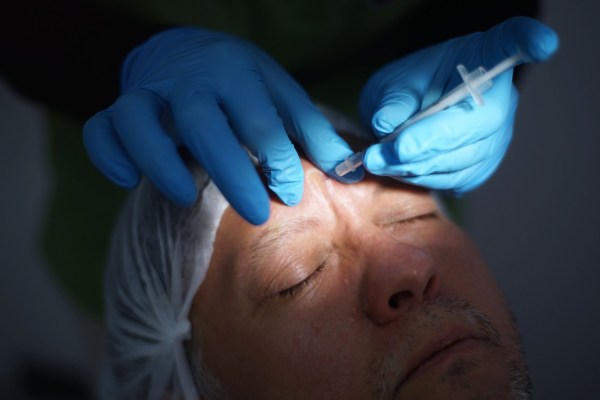 Turkish clinic found to have run misleading ads on Facebook (Photo: Getty)
Turkish clinic found to have run misleading ads on Facebook (Photo: Getty)
Three Turkish cosmetic surgery clinics have been banned from advertising on Facebook after being slammed by an advertising watchdog.
Getting cosmetic surgery abroad has become big business, especially in Turkey, with many clinics offering all sorts of discounts to lure people in.
However, following an investigation by the UK Advertising Standards Authority (ASA), many of the adverts have been criticised for downplaying the essential aspects of the advertising process and providing misleading information to potential customers.
One advert for ClinicHaus Health promised “one of the world’s most successful doctors” and a “five-star package holiday with VIP transfers.”
 The clinic was accused of downplaying the seriousness of the procedure (Photo: PA)
The clinic was accused of downplaying the seriousness of the procedure (Photo: PA)
Another ad for AsproMed encouraged people to “unleash your inner beauty” and promised “permanent beauty.”
AsproMed’s advertising included the claim “Achieve permanent beauty with a gastric balloon”, but the ASA found that it misled customers by suggesting that simply undergoing a gastroscopy would lead to permanent weight loss without making any other changes.
According to NHS guidelines, an intragastric balloon is a temporary measure and should only be left in place for a maximum of six months.
It also states that patients who undergo bariatric surgery must make permanent lifestyle changes to prevent further weight gain, including meal plans, exercise and regular follow-up appointments.
The ASA therefore concluded that the clinic’s claims to offer “permanent beauty” were misleading.
Another plastic surgery clinic, Erdem Clinic, specializes in “nose jobs” and uses the tagline “Don’t let your nose obscure your face” in its advertising.
The clinic also offered customers a 30 percent discount if they received multiple treatments.
 Another advert was accused of pressuring consumers to buy multiple cosmetic surgery procedures (Photo: PA)
Another advert was accused of pressuring consumers to buy multiple cosmetic surgery procedures (Photo: PA)
As the advert pressured consumers to undergo more cosmetic procedures than they would normally do, the ASA decided it had not been produced in a socially responsible way and therefore breached the Code.
None of the adverts mentioned the need for a pre-consultation to ensure the patient was suitable for the procedure, and only ClinicHaus responded to the ASA.
An ASA spokesman said: “We know that more and more consumers are considering undergoing cosmetic surgery overseas due to cost and accessibility, and while many may be happy with the results, there are still inherent risks.”
“That’s why it’s so important that advertising of these services is not misleading or irresponsible, and this is a top priority for the ASA.”
“Advertisers targeting UK residents will need to ensure they comply with the code, even if their services are not based in the UK.”
“The decision to undergo cosmetic surgery should not be taken lightly and people should not be pressured into taking up limited-time offers.”
“It should also be made clear whether prior consultation is necessary and where it will take place.”
 The Advertising Standards Authority claimed the ad presented misleading information (Picture: PA)
The Advertising Standards Authority claimed the ad presented misleading information (Picture: PA)
“We continue to monitor the situation, are conducting further investigations, and are preparing further regulatory action in the near future.”
Following this ruling, all advertising was banned as is.
Clinic House Health said in its response that it has legal certification and authorization from the Turkish government.
They run occasional summer offers as part of the medical tourism industry and highlight that their clinic is located in Turkey.
Mehta said he had no comment.
The ASA said the seriousness of the advertising was compounded by the potential risks of having surgery overseas, including whether doctors and treatment providers have the same medical and safety standards as in the UK, and what arrangements will be made for subsequent care and dealing with any complications.
The ad was also criticised for suggesting that surgery was a decision that could be taken lightly as part of a holiday, without serious consideration of the nature of the procedure.
Guidelines for cosmetic surgery say marketers should not suggest that invasive procedures are “minor procedures”.
Guidelines on cosmetic interventions state that marketers should not suggest that an invasive procedure is a “minor procedure” or similar if the claim is likely to be misleading regarding the complexity or duration of the procedure, the pain experienced during or after the procedure, the length of the recovery period, or potential side effects.
Advertisements must not be misleading regarding any commitments that may be required for pre-consultation, surgery, recovery or post-operative evaluation.
Get the latest news, inspiring stories, analysis and more you need to know
This site is protected by reCAPTCHA and the Google Privacy Policy and Terms of Service apply.
Source link


